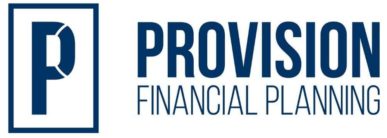Retirement planning for people in their 30s and 40s
Retirement planning for people in their 30s and 40s looks different from traditional retirement planning. In fact, saving into retirement accounts is probably the extent of what most people would consider retirement planning for younger people. That’s actually a great start.
This is because most people think of retirement planning as heavily investment focused and withdrawing from the portfolio. These things are critical, but just one piece of retirement planning, even for people at the traditional retirement age.
I have worked with a lot of people transitioning into retirement and you have to focus on a lot more. Think government benefits, insurance coverages, and especially taxes.
This experience has taught me that there are many things people can do in their younger years, even their 30s, that will set them up for retirement beyond just having a big enough nest egg to retire on.
At its simplest, retirement planning is determining future spending needs and making sure there is a plan to pay for them. With this definition, even people in their 30s and 40s can do retirement planning.
What are some of these things you can focus on that actually are retirement planning even if it doesn’t feel like it?
Ensure You Are Properly Insured (pun intended)
One of the largest risks to retirees’ nest eggs is the cost of long-term care. Insurance may be a part of your long-term care plan and you’ll need to buy it before you turn 60 unless you want to pay a fortune in premiums.
Life insurance also applies to retirement planning because your spouse will have a hard time building up a nest egg in the first place if he or she must support the family on one income with potentially higher expenses. The same applies to disability insurance. Not only would you not have the income you used to, but now you probably would have more expenses related to your disability.
Let’s talk about liability insurance. A common response is someone saying they don’t really need an umbrella policy because they don’t have any assets anyway. If you are working you do. It’s called your income. Courts will garnish your wages. Try building a retirement nest egg with that expense coming out of your pay.
Purchasing insurance prudently (not getting sold insurance you don’t need) is protecting your future nest egg.
Retirement Comes with Stealth Taxes
There are the normal tax issues in retirement, but a few extra stealth taxes that may apply. For example, your Adjusted Gross Income (AGI) may make more of your Social Security taxable. It may also make you pay more for Medicare.
Unfortunately there is only so much a tax planner can do if the only retirement assets someone has are pre-tax, like Traditional 401ks and IRAs.
Younger people can get ahead of this and implement “tax diversification” by saving into Traditional IRAs/401ks, Roth IRAs/401ks and even taxable investment accounts.
This will allow you to have much more flexibility in controlling your AGI and taxable income in retirement so you don’t pay more tax than you have to.
Company Benefits
Working for a generous company can do wonders for a retirement plan. It is amazing how many plans work out when a pension is included in the plan.
The takeaway is to consider more than just salary when comparing careers. This could be a pension or it could be other benefits like Johns Hopkins’ tuition grant program. Talk about an incredible benefit.
Get Control Of Debt
One of the greatest myths out there is you need to be debt free before retiring. I dislike debt as much as the next financial advisor, but there can be some very powerful tax reasons to keep certain debt, such as a mortgage, in retirement.
Just like having a pension, retirement plans seem to work out when debt is not involved. Younger families can go ahead and begin getting rid of this debt smartly without sacrificing the big picture.
Better yet, even younger people can do a better job of not taking on too much debt in the first place. This applies to buying a house you can easily afford as well.
It’s hard enough to to save enough for retirement without additional debt expenses.
Government Benefits
If you’re dual income, you’re already doing this one. Social Security as it stands today allows a person to receive their benefit or ½ of their spouse’s benefit, whichever is higher. Depending on your qualifying earnings, you can end up getting more in total from Social Security than a couple where only one spouse works.
All of these things may not feel related to retirement planning in the traditional sense but you’ll probably be glad you began thinking about them once you are close to retirement.
